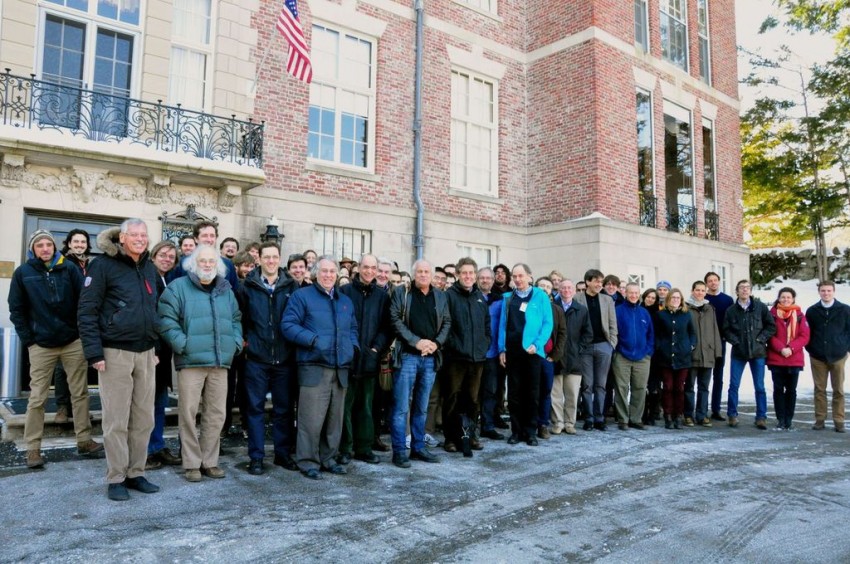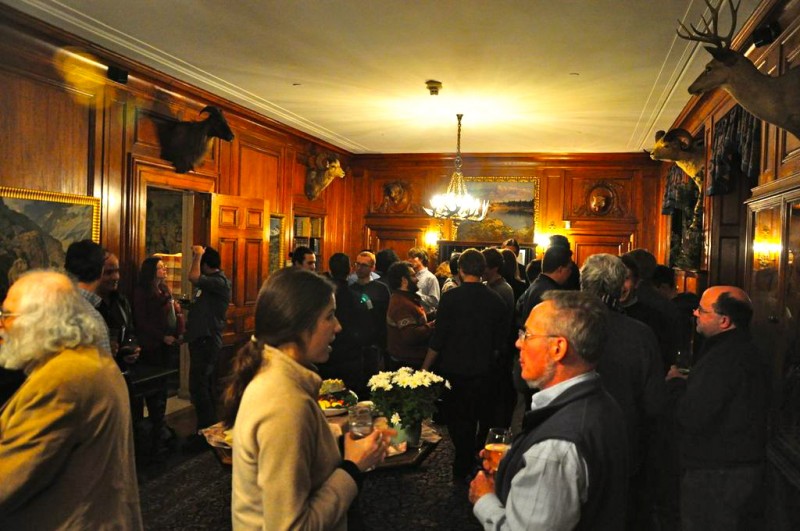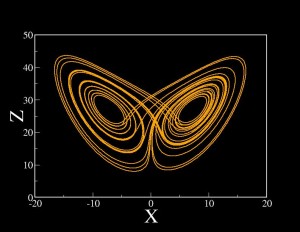Featured Stories | February 22, 2014
At the Lorenz Center, Water Unites Leaders in Climate Sciences
By Genevieve Wanucha
Water has a lot of say in how Earth’s climate works, from cloud distribution to ocean circulation and from atmospheric moisture to snowfall patterns. And scientists often acknowledge that the uncertainty about climate’s future trajectory comes from a lack of understanding of water. This intellectual challenge filled the better part of February 10th, 11th, and 12th for thirty-seven leading climate researchers, along with graduate students and postdoctoral fellows, who participated in the Lorenz Center’s first scientific workshop, “Water in the Climate System,” at the MIT Endicott House in Dedham, Massachusetts.

The Lorenz Center is a new climate research initiative founded by MIT Professors Kerry Emanuel and Daniel Rothman in the Department of Earth, Atmospheric, and Planetary Sciences as a way to renew the emphasis on fundamental questions about climate. The founders dedicated the center to the late MIT professor Edward N. Lorenz, the architect of chaos theory, who shared their conviction that a better description of the underlying principles in climate will make the complex system easier to understand.
The workshop brought together some of the biggest names in climate-related fields who presented work on a climate or hydrological mechanism of their current focus to an audience packed with inquiring minds. The five sessions included Convection; Water Vapor, Clouds, and Climate; Moisture and Weather; Precipitation and Climate; and ‘Potpourri,’ an eclectic mixture of aquaplanet modeling and geomorphology. All twenty-six presentations are available in slide format here.
“It was a great opportunity for younger scientists to learn about the big ideas in the field and hear from voices outside of MIT,” said MIT PhD student Tim Cronin. In fact, they uniquely benefited from the experience. To avoid the ‘experts-talking-to-experts’ phenomenon, Emanuel implemented his strategy of giving the graduate students and postdocs the chance to ask the first few questions in every discussion period. Beyond being observers, the newer generation of researchers drove the conversation from the start.

More than a few times, a student’s inquiry would get the experts talking back and forth about the big climate conundrums of our time, such as how do ocean and atmosphere circulations transport heat across the globe? How can we design models that accurately estimate regional changes in the water cycle as the globe warms? When can we expect significantly different summers and snow storms?
This workshop was made possible by a generous gift from Colin Masson, a retired astrophysicist who appreciates the Lorenz Center’s broad view of climate science and who attended the event. Private donations like Masson’s support the Lorenz Center’s regular activities, which also include the annual John Carlson Lecture. To reach their ultimate vision, Emanuel and Rothman are currently raising funds to eventually support graduate students, post-doctoral researchers, and visiting scientists, with an emphasis on backgrounds in diverse areas such as applied mathematics, biology, and chemistry.
“Our idea, simply put, is both to attract the very best minds to climate science and to give them free reign to think creatively, unsaddled by the pressing practical demands of climate forecasting,” the founders write in A Fresh Approach to Climate Science (pdf). If the “Water in the Climate System” workshop was any indication, the Lorenz Center already serves as that magnet of basic research talent.






